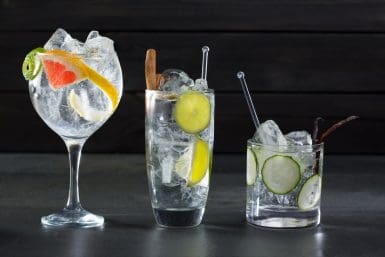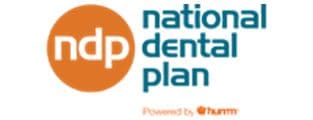Dental Tips: Is Your Sparkling Water Harming Your Teeth?
 You might be one of those people who see the glass as half-empty or one of those people who sees it as half-full.
You might be one of those people who see the glass as half-empty or one of those people who sees it as half-full.
Either way, if the glass has water in it, it’s probably improving your health.
Our bodies are made of 60% water (Our brains and hearts over 70%), and staying hydrated helps your body distribute nutrients, makes your skin glow, eliminates waste, and helps keep your muscles healthy.
Drinking water is also a great thing to do for oral health.
Many doctors recommend you drink two litres of water a day. But that’s a lot of water and drinking it can become a chore.
This is why some people have turned to sparkling water to add variety to their water consumption. In fact, carbonated water sales have jumped dramatically.
At the same time, there have been some reports that the carbonation process might make carbonated water bad for your oral health, and some patients wonder what to do?
At Dental Cube Kellyville Ridge, we believe that the answer to this question comes down to three things; your general dental hygiene habits, the pH of what you drink, and how often you drink it.
Let’s take a look at these three things!
Carbonated drinks, pH, and science!
Several studies have taken a scientific look at the effect of acidic drinks, including sparkling water, and what their consumption does to teeth.
The American Dental Association measured, in their journal, the pH of nearly 400 drinks, including juices, teas, sodas, and sparkling water.
The pH was measured to estimate the erosiveness of the drinks. The natural pH of the mouth is about 7.4, and the pH of water is a neutral 7.
A pH under 7 means that a drink can be erosive. Drinks with a pH under 3.0 were categorised as “extremely erosive,” those with pHs between 3.0 and 3.99 were classified as “erosive”, and drinks with a pH over 4.0 were categorised as “minimally erosive.”
On this scale, non-flavoured or sugared sparkling waters were categorised as only “minimally erosive.” Other studies took different approaches
Ada McVean, a McGill University researcher, conducted a similar study, but one that narrowed the drinks studied to sparkling waters.
She tested the drinks straight from the refrigerator and after they had warmed up to room temperature.
She also tested them in carbonated form and after they had gone flat. In every test, sparkling water had a pH above 4.0., and they were therefore minimally erosive.
She also discovered that the pH rose when the waters were at room temperature and when they lost carbonation. This suggests that sparkling water is more erosive when it is cold and bubbly.
What does “minimally erosive” mean for your teeth?
Scientists and dentists think it doesn’t mean much. The first point is that carbonated water is better for your teeth than many other options.
The pH of most sparkling waters might be a bit more acidic than suitable for most mouths, but only by a small amount.
The pH of Gatorade, for example, is about 3, orange juice is about 3-4, and Coke is an alarmingly acidic 2.4. Sparkling water is positively healthy compared to other alternatives.
The first thing to note is that the acidity of sparkling water is substantially less than that in sodas, citrus juice and sports drinks.
The more acid a drink is, the higher the risk of enamel eroding. Further, non-flavoured sparkling waters have no sugar, substantially reducing the threat to teeth.
Is mineral water a threat?
Dentists pretty much agree that the risks are small.
Dentist Damien Walmsley, a University of Birmingham professor of dentistry, says, “There is a theoretical risk of tooth erosion, but the drinks would have to be consumed over a long period.”
He recommends keeping acidic drinks to mealtimes for increased safety.
Andrew Swiatowicz, a Wilmington dentist, says, “For an average, healthy person, carbonated, sugar-free beverages are not going to be a main cavity-causing factor.”
Of course, the healthiest drink is plain water, but sparkling water seems to present minimal risk.
Tips for drinking sparkling water
- Do drink it as a replacement for sugary or acidic drinks.
- Know what’s in your sparkling water. Citrus-flavouring can mean higher acid (citrus acid) levels.
- Enjoy acidic drinks quickly or while eating. This limits the exposure of your teeth.
- Added sugar increases your risk of cavities.
- Use a straw to get liquid past your teeth.
- Rinse your mouth with water after drinking acidic drinks.
Dentistry in Kellyville Ridge
At Dental Cube Kellyville Ridge, we give dental treatment in a fun, comfortable setting.
From our thoughtful, gentle staff, to our cutting-edge technology and amenities, we provide our patients with the best possible service.
We deliver personalised service to each patient and their unique needs. Your care and comfort are our priority.
Dental Cube Kellyville Ridge serves local communities in Kellyville, Kings Langley, North Kellyville, Beaumont Hills, Rouse Hill, Schofields, The Ponds, Stanhope Gardens, Parklea, Glenwood and Lalor Park.
For more information, call us (02) 8889 1588 or book your appointment online.
We are located at G4/8 Merriville Rd in Kellyville Ridge.
We Offer Interest Free Payment Plans - No Interest Ever!



Frequently Asked Questions
- We offer interest-free payment plans with National Dental Plan- powered by Humm, Afterpay and Zip Money
